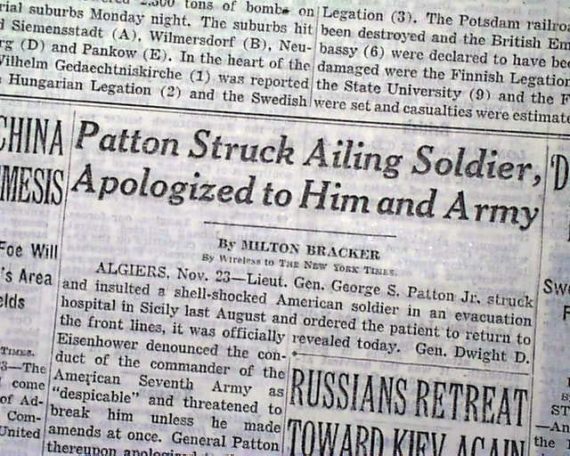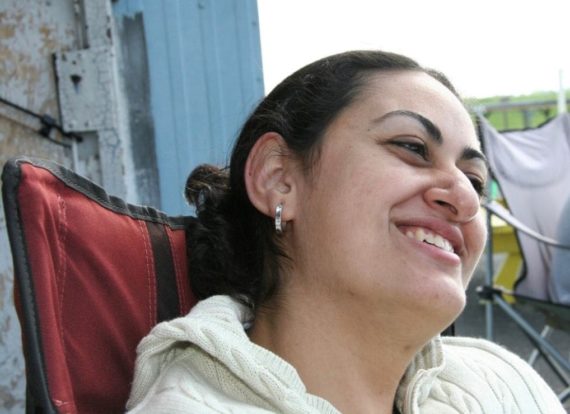
(5-27-19) Ranya Abdelsayed spent a year in Afghanistan targeting senior al-Qaeda and Taliban fighters at one of the Central Intelligence Agency’s most important bases. Less than 48 hours before she was to return home, the 34 year-old fatally shot herself in the head.
The CIA maintains a Memorial Wall in the lobby of its Langley headquarters to recognize those who “gave their lives in the service of their country,” but a recent spat reveals a lingering prejudice and stigma about mental illnesses.
The Washington Post, which broke this story, quoted a longtime CIA historian, who retired in 2016, objecting to her name being approved and a star representing her being added to the wall:
Abdelsayed’s inclusion violates the agency’s own criteria — and her star “must absolutely come off the wall.”
The famed memorial, he said, is reserved for deaths that are “of an inspirational or heroic character” or are the result of enemy actions or hazardous conditions…“There’s been an erosion of understanding in CIA leadership for at least two decades about what the wall is for and who is it that we’re commemorating…Now we have a suicide star on the wall. That’s not what the wall is for. Suicide is a great tragedy, of course. But the purpose of the wall is not to show compassion to the family. It’s to show who in our community is worthy of this honor.”
Yep, you read that right: “Show who in our community is worthy of this honor.”
Would this historian have objected if Abdelsayed had died of cancer, a heart attack or brain aneurysm instead of what appears to have been a mental illness? Would he have considered those ailments not “inspirational or heroic.” No, but mental illnesses continue to be associated with weak moral character. That’s wrong.
Fortunately, Jeremy Butler, chief executive of Iraq and Afghanistan Veterans of America wrote an eloquent OP in the Post explaining why Abdelsayed deserved to be on that wall of heroes.
We can never know for sure why she chose to end her life, but former CIA director John Brennan, who made the decision to include her star on the wall, told The Post that he believed her death was “a direct result of her work and her dedication in a very difficult overseas environment.” If that was the case, it would be similar to the injuries suffered by veterans who returned from the conflicts in Iraq and Afghanistan with post-traumatic stress disorder. The conversation about whether Abdelsayed deserves a star perpetuates a fear and insecurity that many veterans carry with them: that experiencing the effects of trauma is somehow unheroic or not a natural result from enemy actions or hazardous conditions.
Suffering from trauma is not a sign of weakness or a failure of an individual’s resilience. It is an injury. Exposure to trauma rewires the brain, potentially affecting our ability to make rational assessments of the world around us.
The effect of trauma on the brain is no different from a torn anterior cruciate ligament’s impact on mobility. And, just as an ACL can heal with the help of treatment and a long, uncomfortable rehabilitation process, a brain can rewire itself to recover from trauma. There is hope for those who have been diagnosed with post-traumatic stress disorder and for those who are suffering from the effects of trauma, even without a diagnosis.
When we question the validity of these kinds of injuries, we do a great injustice to the men and women who serve our country in conflicts overseas. We also risk pushing these injuries underground and dissuading people from seeking help. Mental-health injuries are a natural and predictable result of charging Americans with the defense of our nation. We reward those service members who are physically injured in battle with Purple Hearts, yet we stigmatize and question the sacrifices of those whose brains are injured by the same battle experience.
On Memorial Day, we need to recognize all of those who have lost their lives in service to our country. And that includes those with mental illnesses.
Or as Mr. Butler concluded:
It is time to put an end to this double standard. Our nation is struggling with a veteran suicide crisis. Twenty veterans and service members die by suicide a day, and more than half of them have diagnosed mental-health injuries…
This one star on CIA’s wall (for Ranya Abdelsayer) is an important step in the right direction. Let us stop stigmatizing and recognize trauma injuries for what they are.
Thank you Ms. Abdelsayer for your service. I am proud that your name is represented today by a star on the wall.

An undated photo of CIA officer Ranya Abdelsayed, who died by suicide in Kandahar, Afghanistan, in 2013. (Obtained by The Washington Post)



